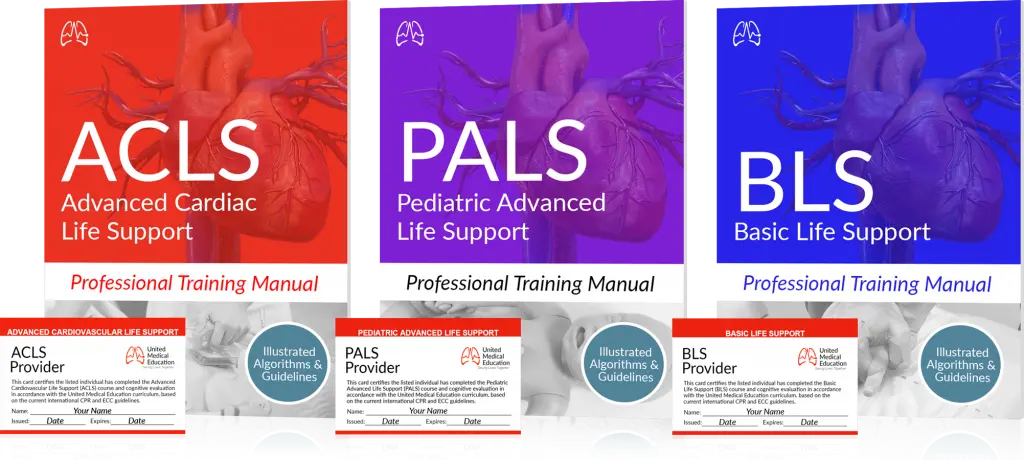College students face a number of challenges when they leave home to begin their undergraduate education. In their new atmosphere young adults often find themselves interacting with dozens of students throughout the day. Many of the resources in both the college campus and student housing are communal, being shared with several other people. This poses a unique risk regarding the contraction of common communicable diseases. We here at United Medical Education want to help you stay informed and healthy with regards to bloodborne pathogens and other infections.
Learning to take the proper precautions to avoid contracting these common diseases, recognizing their symptoms, and avoiding the spread of such diseases is an important part in protecting the student body as a whole. This article is written for college students, college faculty and staff, and healthcare providers that have regular interaction with college students to help them understand what they can do to prevent the spread of common communicable diseases.
Common Illnesses Contracted by College Students
Influenza:
Influenza, also known as the flu, is commonly contracted among college students. Influenza is a viral infection that primarily targets the respiratory track and lungs. Contracting the flu can weaken someone’s immune system and make them vulnerable to other more severe opportunistic infections. Influenza evolves quickly which is why a seasonal flu vaccine shot is required rather than a single vaccine shot during someone’s lifetime.
Common Symptoms:
- fever
- headache
- sore throat
- nose discharge
- muscle pain
- cough
- malaise
Nausea and vomiting are not common symptoms of the flu in the adult population.
Prevention Practices For Influenza:
- hand washing with soap (Soap inactivates the virus.)
- covering cough with the inside of the arm at the point of the elbow
- wearing a surgical mask
- Influenza (flu) vaccine (most effective)
Additional Resources Regarding Influenza:
Meningococcal Disease:
Meningococcal disease, or bacterial meningitis, is a potentially life threatening bacterial infection. It can cause inflammation of the membranes that cover the spinal cord and brain. It also can cause a serious blood infection. Long term affects of bacterial meningitis include seizures, stroke, mental retardation, hearing loss, limb amputations, and several other nervous system problems.
Common Symptoms:
- fever
- headache
- stiff neck
- nausea and vomiting
- drowsiness
- joint pain
- intolerance of bright lights
- confusion
Prevention Practices for Meningococcal disease:
- Hand washing with soap
- Using alcohol-based hand sanitizer
- Covering cough with inside of arm at the point of the elbow
- Avoiding contact with individuals who may be infected
- Assuring hands are clean before making personal contact with eyes, nose, or mouth
- meningococcal disease vaccine
Additional Resources Regarding Meningococcal Disease:
Human Papillomavirus (HPV)
Human Papillomavirus (HPV) is the most common sexually transmitted infection. Almost all sexually active women and men will contract HPV at some point during their lives. While almost all sexually active individuals will contract HPV there are different types of HPV that can cause health problems and others that go without symptoms. Some of the worst health problems associated with HPV are genital warts and cancer.
Symptoms:
- genital warts
- cervical cancer (women)
Symptoms may appear years after contracting the virus, if ever, which makes it difficult to know when someone was first infected.
Prevention Practices for Human Papillomavirus:
- abstinence from sex
- correct condom use (Areas not covered by the condom may still get infected.)
- HPV vaccine (safe & effective)
Additional Resources Regarding Meningococcal Disease:
Important Vaccination Information
Colleges understand the health risks associated with having many students sharing a single campus and it’s resources. Because of this, colleges regularly have vaccination requirements and protocols. Assuring that you meet these vaccination requirements is vital to the overall health of the student population. While colleges and states have their own set of required vaccinations, there are some vaccinations that are helpful to obtain that may not be required by the school or state.
Vaccinations Regularly Required:
- Measles, Mumps, & Rubella (MMR)
- Diphtheria-tetanus-pertussis (DTaP)
- Varicella (chickenpox)
- Inactivated polio vaccine (IPV)
- Haemophilus influenzae type b (Hib)
- Pneumococcal conjugate (PCV)
Vaccinations Recommended But Regularly Not Required:
- Influenza (flu) vaccine
- Meningococcal Vaccine
- Human Papillomavirus (HPV) vaccine
Influenza, also known as the flu, is one of the most common communicable diseases. Obtaining a seasonal flu vaccine every year has proven quite successful in helping prevent the contraction and spread of the disease. Receiving proper medical treatment and medication is important in both prevention and recovery. Meningococcal disease can be deadly or cause permanent damage to the body. Obtaining the Meningococcal disease vaccine has also proven quite successful in preventing the spread and contraction of the disease. The Human Papillomavirus (HPV) is one of the most common sexually transmitted diseases. It has been shown to cause cancer in some women once they reach an advanced age. Some strands of HPV are also the cause of genital warts which can cause emotional stress. While the HPV vaccine is generally recommended for women, young men can also receive the HPV vaccine to help prevent the contraction and spread of the disease.
Vaccination Chart and Schedule:






